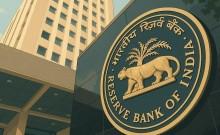
Far from affecting tax collection, the push for a cashless economy that followed demonetisation of high-value notes on November 8 last year has resulted in an increase. The buoyancy happened due to more commercial transactions the formal economy, according to Nirmala Sitharaman, commerce and trade minister in the Modi government.
She was speaking at the DigiDhan Mela organised in Madurai last Sunday.
Last week, the government said that tax collection, both direct and indirect, grew for the 11-month period ended February this fiscal in comparison to the corresponding period last year.
Total net direct tax collection stood at Rs 6.17 lakh crore, an increase of 10.7 percent over the corresponding period last year and 72.9 percent of the budget estimates for the current fiscal.
Indirect tax collection rose 22.2 percent to Rs 7.72 lakh crore to reach 90.9 percent of the revised estimates for the current financial year.
Another minister said that the spurt in cashless transactions since demonetisation proved that people adopted the change swiftly. "The Modi government has brought banking to the doorstep of everyone," Pon. Radhakrishnan, Minister of State for Shipping, Road Transport and Highways, said at the DigiDhan event, according to the Hindu.
The Modi government started the concept of giving incentives to individuals and business establishments for adopting digital transactions with two separate schemes — Lucky Grahak Yojana and Digi-Dhan Vyapar Yojana.
"The focus of Lucky Grahak Yojana and Digi-Dhan Vyapar Yojana is on poor, middle class and small businesses so as to bring them into digital payments revolution," Niti Aayog CEO Amitabh Kant had said while explaining the rationale behind the schemes.
The government had earmarked Rs 340 crore for the initiative last December.
The total amount disbursed to 6.26 lakh people under the two schemes was Rs 97 crore of February 3, 2017, the NITI Aayog had said in a statement.

















